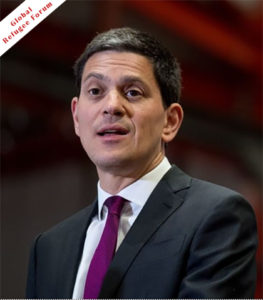Geneva Refugee Forum – where to from here
A year ago, the UN General Assembly adopted the Global Refugee Compact, hailed at the time as a historic framework for a fairer way for the world to support refugees.
This month, world leaders gathered in Geneva for the Global Refugee Forum to assess progress made since the signing.
 Despite pledges worth billions of dollars from states and corporate entities, the reality is that the gap between the needs of refugees and the support for them continues to grow.
Despite pledges worth billions of dollars from states and corporate entities, the reality is that the gap between the needs of refugees and the support for them continues to grow.
The number of people deemed refugees worldwide has grown to nearly 26 million, a reflection of new waves of displacement in places like Venezuela, which have added to the toll of longer-term conflicts from Afghanistan to Syria and South Sudan.
But as some countries step forward to help, others are stepping back.
In 2016, 37 countries committed to resettle refuges; now just 25 are accepting the displaced.
The US has retreated from its leadership role in resettling refugees – cutting its refugee settlement ceiling from a historic average of 95,000 to just 18,000 this year.
EU leaders’ inability to reach agreement on responsibility sharing has condemned about 40,000 to a life limbo on the Greek islands.
Even when refugees are offered safety, there are still too many barriers to rebuilding their lives, particularly with jobs and refugee women are hit hardest.
The Global Compact represents an important, although voluntary, promise to support host countries and refugees.
As head of the International Rescue Committee (IRC) David Miliband pointed out recently, for the aims of the Global Compact to be realised, four things need to happen.
First, every host country must support refugees into work and education. The EU should commit to an action plan that removes barriers to refugees, especially women, working. Also, all countries should include refugees in their sustainable development goal plans and reporting.
Secondly, every developing country that lets refugees work and get an education should get real long-term financing from the World Bank and others – removing short-term humanitarian funding cycles, otherwise our progress will wane with each one.
Thirdly, despite the tremendous need, education accounts for just 3 per cent of all funding in emergencies. The European Commission has led the way by committing to 10 per cent – others should follow.
Lastly, resettlement needs to be rescued from the US retreat. Resettlement places need to be scaled up to 250,000 by 2025.
This way we can achieve the global responsibility sharing the Global Compact promised.












